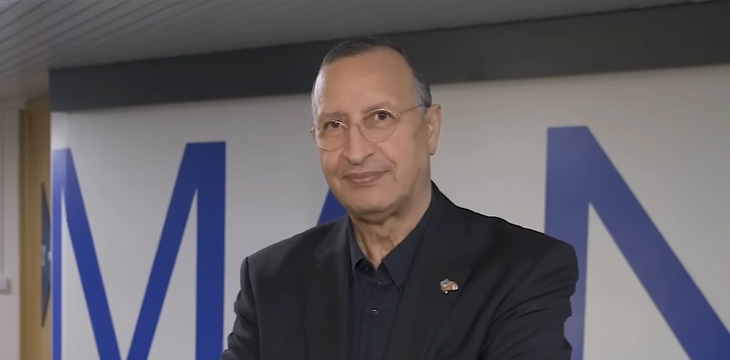|
Getting your Trinity Audio player ready...
|
IPv6 Forum President Latif Ladid has been busy promoting IPv6, 5G, and blockchain technology with fellow experts in the industry while working on a new project geared toward improving the global food supply chain.
Speaking on the sidelines of the IEEE Exeter Blockchain Event, Ladid told CoinGeek Backstage that his team is working on the future execution of a €12-million ($13.1-million) project dubbed Cities 2030 in Europe.
The initiative is a collaboration with 40 partners, and among those is Stephan Nilsson, the founder and CEO of UNISOT, who gave a talk at the University of Exeter about the deployment of blockchain in the food supply chain and using a combination of Bitcoin SV (BSV) and digital cash for his latest projects that seek to transform the sector.
Going back to the Cities 2030 project, Ladid said his team would use Nilsson’s tracking and tracing software in implementing the scheme in 11 towns in Europe for its pilot run.
“We’re doing the first test in Belgium, where we have a lab that is going to use his software to do the tracing and tracking of products from the farm over the chain up to basically the stores,” he said, adding that the move will allow consumers to find out where the products came by simply using QR codes.
Ladid said the successful automation of the supply chain tracking system could cut the chances of food getting lost in the chain by about half from the current estimates. According to recent studies, around 20% of food produced in the United States alone is getting lost in the chain.
The project will not only help consumers track the origin of their purchased products but would also slash unnecessary production of food that may lead to resource scarcity in the long run, he said, adding that blockchain is the primary key to preventing such a catastrophe from happening.
“Blockchain is going to be a radical innovation,” Ladid said, pointing out that many countries have the proper regulations to supervise their food supply chain but lack the right tools—utility.
“In this case, if we put this (blockchain) in place, then the regulator could be able to find where the problem exists. So, there is a big promise in this area,” he concluded.
Watch: Food Supply Chain & Blockchain

 02-27-2026
02-27-2026 




